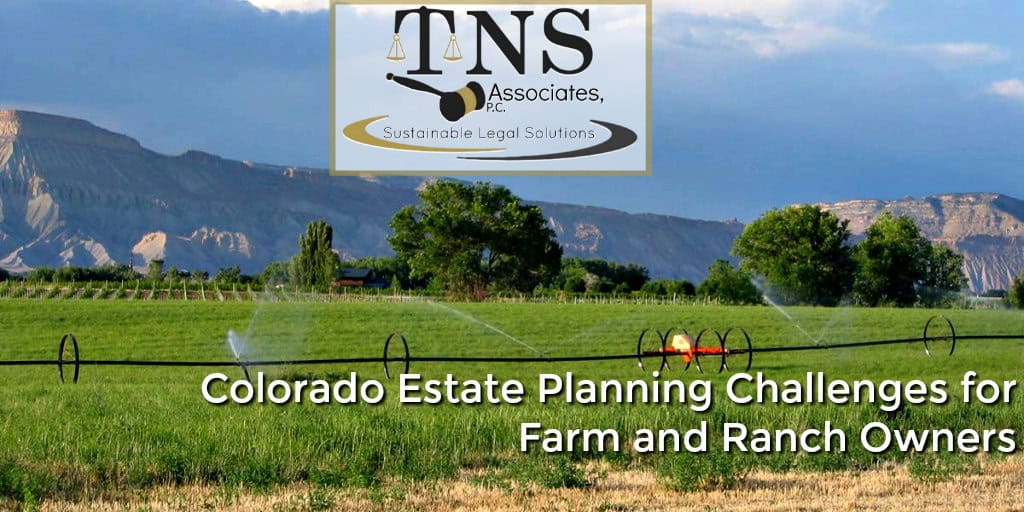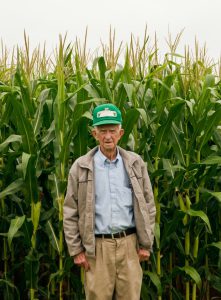Colorado Estate Planning Challenges for Farm and Ranch Owners

There are unique challenges many farm and ranch owners face when planning for death or incapacity in the State of Colorado. Most of these obstacles stem from two threads common to farms nationwide. First, many farm and ranch owners have worked incredibly hard their whole lives to grow and develop their business, and they would like their enterprise to live on and stay in the family after they are gone. Second, they commonly have several children, and while most of these children would also like to see the farm stay in the family, not all of them desire to live on the farm and assist with operations. To further complicate planning for those two sets of facts, almost all farms and ranches carry with them a special blend of assets and liabilities, and good estate planning must take both into consideration. Usually, the farm owners’ goal is to provide for all of their children equally upon death, but it may not be realistic to pass equal shares of the farm on to them. How will the on-farm and off-farm children work together to run the family business? What about the children who have left the State of Colorado entirely? Often, farm debt prevents a buy-out of the off-farm children’s interest from the on-farm children. Even if there is enough equity for the on-farm children to borrow against, this new financial burden may become unmanageable and leave them with no other option than to sell the farm, piece by piece. Additionally, there can be the foreseeable but often unplanned debt incurred later in life for elder care. This is often an uncontemplated risk that can substantially alter even the otherwise best laid plans, and it also begs the question as to what happens to the farm if there is a long period of incapacity before the owner passes. If structuring a workable solution around these obstacles wasn’t difficult enough, then there are all of the tax considerations. Which assets have appreciated and depreciated? This can be important.

For example, livestock that has grown and appreciated in value is eligible for a tax free increase in basis upon death of the farm owner, and where do these assets go? Some solutions can become quite complex. Will there be a series of lifetime sales? If life insurance is purchased, trusts are created, and/or a business entity must be formed in order to find a fair and equitable solution for the children and in order to keep the farm intact, then careful consideration must be given to which assets are distributed where and what is transferred before and after death so as to maximize tax benefits and avoid pitfalls. Should a simple, cookie-cutter solution become available for farm and ranch estate planning, then I would gladly share it. I am not one for hiding the ball, and if I do not post it online or write about it in a do-it-yourself handbook, then someone else will. The truth of the matter is that every situation poses its unique set of challenges. No two farms and set of family dynamics are the same. At least, if there are two out there, I have not found them. Taking the time to sit down with a knowledgeable Estate Planning Attorney who understands farm and ranch issues is valuable. It can save the children beneficiaries a lot of money and heartache. Also, it gives farm owners the satisfaction and peace of mind that they have a thorough, educated course of action for inevitable future events, and they have taken every necessary step to set their affairs in order, ensure their children will inherit fairly and that their farm has the best chance possible for continuing in the family name.

